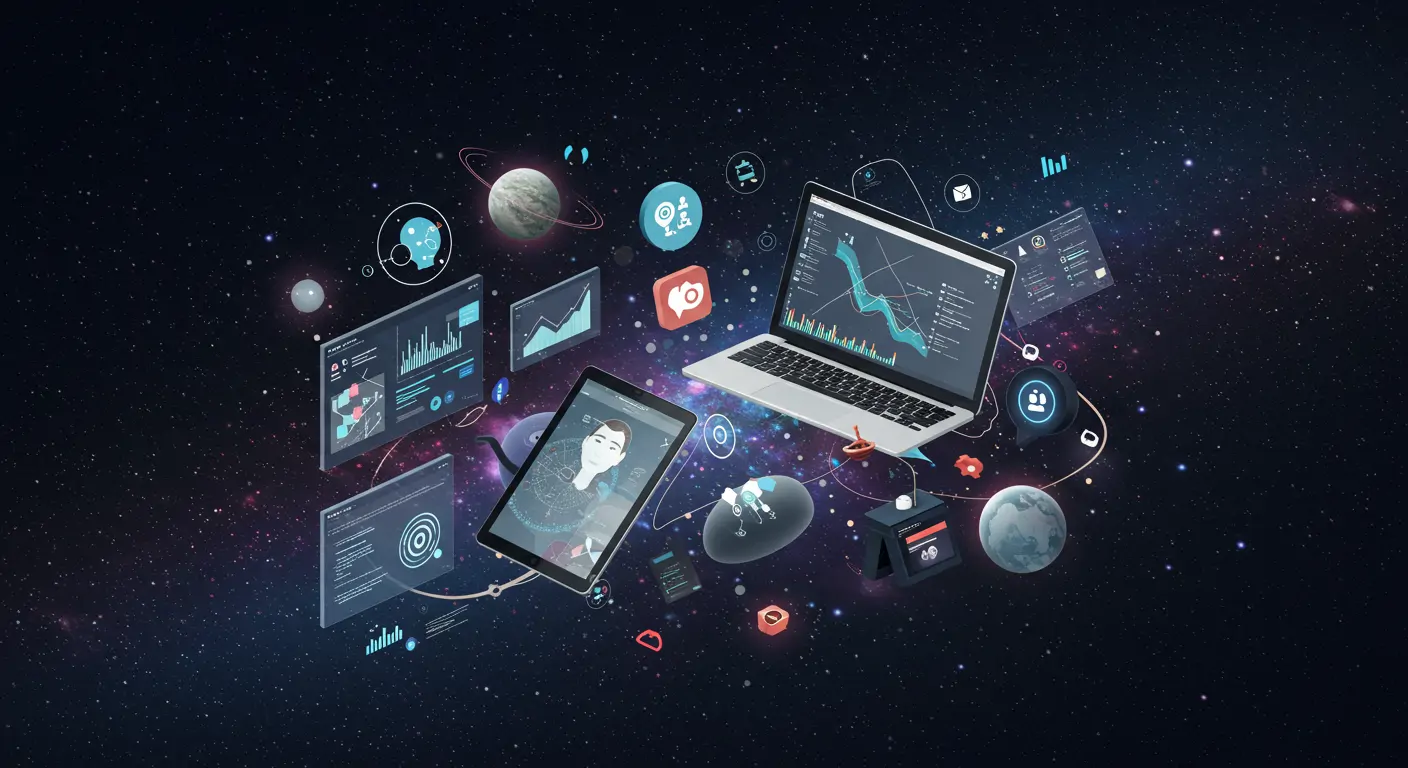Introduction: Why This Matters Now
In 2024, Statista reported a 35% increase in startups adopting AI-powered mobile app development tools, significantly altering the tech landscape. This trend indicates a paradigm shift where traditional coding methodologies are rapidly being replaced by AI-driven approaches. This transformation is particularly poignant for startups, where speed and efficiency can make or break a new venture. This article explores how AI-powered tools are reshaping mobile app development and what this means for startups in 2025.
Read time: 10 minutes
The Current State: What's Happening Right Now
As of mid-2024, key players like Google, IBM, and Microsoft have been leading the charge with innovations in AI development platforms. In March 2024, Google launched its Firebase AI Suite, which accelerated app deployment by 50% (Google Developer Conference, 2024). Meanwhile, IBM's Watson AI for Developers saw a 40% increase in adoption year-over-year, suggesting a growing preference for AI-assisted development (IBM Quarterly Report, Q2 2024).
Caption: Data visualization of AI adoption rates in app development
Traditional coding is increasingly seen as cumbersome, with its slower development cycles and higher costs. Startups, constrained by limited resources, are finding these traditional approaches unsustainable.
Key Drivers: What's Fueling This Trend
Driver 1: Economic Efficiency
AI-powered tools drastically reduce development costs. According to Accenture's 2024 Technology Vision report, AI can cut app development expenses by up to 60%, allowing startups to allocate resources more efficiently.
Driver 2: Speed to Market
AI platforms like Google's TensorFlow Lite and IBM's Watson streamline workflows, enabling a rapid prototyping process. A report by Deloitte in 2024 indicated a 55% reduction in time-to-market for AI-utilizing startups.
Driver 3: Skill Accessibility
With AI-assisted development, the barrier to entry for non-developers is lowered. Platforms offer intuitive interfaces, allowing those with minimal coding knowledge to create sophisticated applications, democratizing app development.
Real-World Impact & Case Studies
Case Study 1: Appify Technologies
In 2024, Appify Technologies, a small startup focusing on e-commerce solutions, integrated IBM Watson's AI for app development. They reduced their development timeline from 8 months to 3 months, increasing their customer acquisition by 200% post-launch. The key lesson here is the strategic advantage gained by using AI to outpace competitors.
Industry Implications
For Developers
- Crucial to learn AI-based tools like TensorFlow
- Enhanced career prospects in AI-enhanced roles
For Businesses
- Need to integrate AI to maintain competitive edge
- Strategic advantage through cost and time savings
For Investors
- Opportunities in AI tech investments
- Risk in traditional tech companies not adopting AI
Challenges & Criticisms
Despite its benefits, AI-powered development faces criticism. Concerns over data privacy and the potential for job displacement are prominent. Furthermore, reliance on AI might stifle creativity, as algorithms adhere to predefined patterns, limiting innovation.
Future Outlook: What's Next
In the next 6-12 months, expect an increase in AI-focused startup incubators and accelerators. By 2025, AI platforms will feature advanced integrations, further reducing human intervention. Key milestones include the anticipated launch of Apple's AI Developer Kit by Q3 2025, transforming the mobile app development toolkit.
Frequently Asked Questions
- How does AI reduce development costs?
- What skills are needed to use AI in app development?
- Is AI development secure?
- What are the best AI tools for mobile app development?
Conclusion: Key Takeaways
- AI reduces app development time and cost significantly.
- Startups gain a competitive edge through AI integration.
- Developers should focus on learning AI tools to stay relevant.
- Investors should consider AI tech for future growth opportunities.
To explore more, visit our detailed guides on AI development platforms and upcoming industry conferences.




